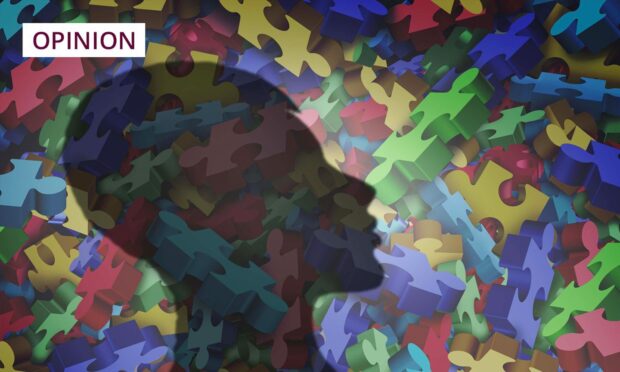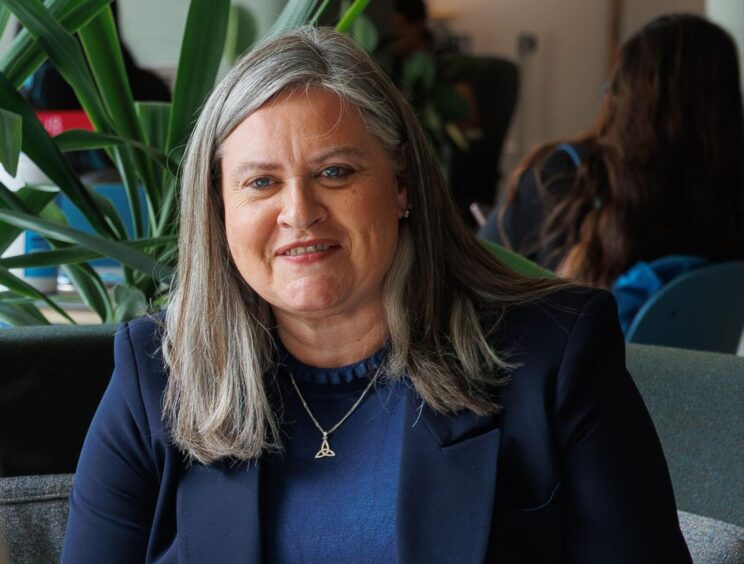Autistic adults in Stirling who are awaiting a formal diagnosis can no longer get one from the NHS.
Read that again.
This week, NHS Forth Valley confirmed that the area’s dedicated autism assessment service has been scrapped.
The money’s not there, so the service is gone, they say. Without the service, there’s no way to get diagnosed.
Seems like a really quick way to reduce the reported figures of autism in an area, doesn’t it?
But of course, just because an autistic person remains undiagnosed doesn’t mean they stop being autistic.
They’re just autistic without “proof”.
In a way, the diagnosis itself is completely arbitrary; it doesn’t change anything neurologically. Autism alone isn’t something you treat medically.
So why does it matter?
Why does autism diagnosis matter?
Sadly, we know that without that diagnosis, an autistic adult may face scepticism from those around them, or even from themselves.
That can hamper their access to support at work, within their families and from the government.
At the very least, this can leave undiagnosed adults trapped in a life where they feel misunderstood, struggle to cope while completing tasks like shopping or travelling, and are worse off financially than they would be with the support of a diagnosis.
These aren’t struggles that officials can afford to write off with phrases like “budget gap” or “dried up funding”. This is quite literally life or death.
Autistic people are more likely to think about suicide or take their own lives than neurotypical people.
Those most at risk? Late-diagnosed or undiagnosed adults.
So there’s no doubt that diagnosis can be life-changing, if not life-saving, for autistic adults.
Clearly, adult autism assessment service is currently essential.
But what if it wasn’t?
Is self-diagnosis as valid?
What if we lived in a world where external autism diagnosis wasn’t necessary in order for people to be believed and access support?
Then the NHS cutting back on assessment centres may not be as devastating to real-life communities as it currently is.
But that would be contingent on self-diagnosis, also known as ‘self-identification’ or ‘self-ID’, being accepted without question.
And I mean across the board – in education, in workplaces, and by government agencies.
Not to mention in the minds and hearts of those who may be reluctant to believe their loved one is autistic without a piece of paper from a doctor to say so.
Self-ID can be incredibly helpful for adults who suspect they have autism but either don’t have immediate access to assessment, or don’t feel they need to be assessed.
It allows people to look at difficulties they might have (sensory or emotional) without feeling ashamed, and understand themselves more.
Which can help them be more proactive in adjusting their life to make it more manageable.
To me, it has no downside.
Why are people wary of self-diagnosis?
But whenever I speak to folk in the real world about self-ID and autism, I always hear a medley of similar responses:
- “But how do I know they’re telling the truth?”
- “Then anyone can just say they’re autistic and get disability benefits!”
- “Why should some people get special equipment or accommodations (i.e. noise cancelling headphones, soft lighting, frequent short breaks) in a workplace, and not everyone?”
- “Why would someone suddenly need me to know they’re autistic if I’ve known them for a long time?”
To anyone who has this kind of knee-jerk reaction, I’d ask you to consider this:
What is the worst thing that could happen if your loved one or employee self-identifies as autistic, but they’re actually not?
They understand the way they operate (whether autistic or not) a bit better? They stop beating themselves up for struggling with their emotions or day-to-day life?
Maybe they feel confident enough to ask for a sensory accommodation that will make their life easier, and others decide they also want that.
Wouldn’t that just mean everyone was happier and more comfortable?
Or God forbid, a person who has trouble making enough money to support themselves through traditional means might access some extra cash from the government if, after rigorous checks, it’s determined that they are entitled to it.
Are you afraid people will use self-ID autism as an excuse for challenging behaviour? Is there a danger in allowing a protected characteristic to be self-determined?
To that, I’d simply say that this world will always contain people who abuse the system. We can’t let them be a reason to shy away from sensible, compassionate progress.
Where does the autistic community stand on self-diagnosis?
There is an argument to be had that incorrect self-ID could be harmful to an overall understanding of what autism actually is, through misunderstanding and misinformation.
That’s fair, but generally, the autistic community as a whole are accepting of self-ID, which would lead me to believe that’s not a concern which outweighs the benefits.
The way I see it, the worst possible consequence of not validating adult autism is preventable, tragic death.
Meanwhile, what’s the worst consequence of just believing people when they say they are autistic?
A softer world?














Conversation